David Milch’s profane Western laid out a roadmap for the former Chumbawumba singer to take up screenwriting in her 40s
Deadwood
HBO, 2004-2006
UK tx: Sky 1
In 2004, I was 43 and at a terrifying juncture in my life.
By dent of being in a gang, I had spent 20 years in Chumbawamba, a pop band/anarcho punk collective that had peaked with a hit in America and was now coming to an end of its shelf life.
For those two decades, I had thought I was a better writer than musician and I’d always intended to leave the band before I was 40 to write. But friendships, regular money and the lure of people clapping had kept me performing.
I wanted to write for stage and TV but I hadn’t the faintest idea of what it required or how to go about it.
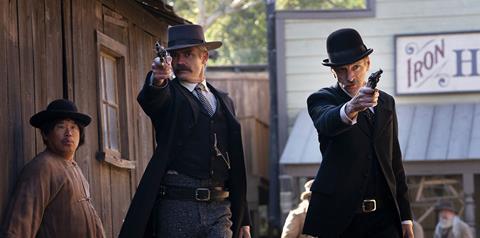
Then I watched Deadwood.
The ambition of it blew my mind. I needed a babel fish to get the dialogue, but once it clicked, it was muscular, wise and profane.
The language wasn’t authentic to 1870s South Dakota (unless the actual inhabitants of Deadwood constantly gave Shakespearean glimpses into the best and worst of human nature whilst calling each other cocksucking cunts).
“It set the bar impossibly high, laying out the sort of TV I wanted to write and what it would require: great language, complex characters, big themes and big ideas”
But all the characters - many of them historical figures such as Calamity Jane, E.B Farnum and Wild Bill Hickock - were fully realised.
Two dominated: Al Swearengen, a cutthroat saloon owning anti-hero (Ian McShane in a scenery-chewing career best) and Seth Bullock (Timothy Olyphant in Gary Cooper mode, a good man so uptight that he can’t piss straight for rage).
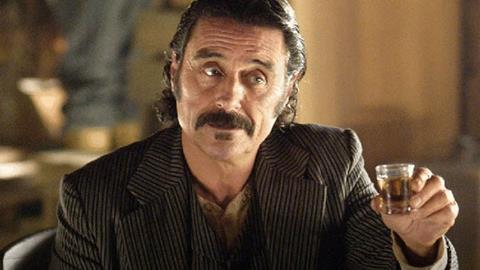
Swearengen is an ultra-violent Richard III made flesh, his weak spot being that under the murderous actions he cares for other humans.
We see this in his relationship with Paula Malcolmson’s Trixie, a damaged but determined to survive prostitute.
Deadwood women have few rights and little power. But they constantly grasp for it - they organise, refuse their roles and the men are forced to recognise their humanity, however inconvenient that might be.
The best and most humane TV monologues I have ever seen come from Deadwood and Swearengen in particular. In one of his most powerful moments, he details the sexual abuse of his childhood - while receiving a blowjob from a prostitute.
Swearengen also took to talking to the severed head of a dead Sioux Chief that he kept in a box. When it was too difficult to communicate with another living human, Deadwood characters would still communicate.
Fear and faith
Creator David Milch (Hill Street Blues, NYPD Blue) was a recovering drug addict. He made his characters’ addictions and flaws understandable. Deadwood allowed you to hate the sin but not the sinner.
His initial pitch was a show with an insane Emperor Nero ruling Rome, where the only organising principle was the orders of a mad man.
It was to begin with cops ordered to arrest St. Paul, giving birth to a new organising principle: faith.
But HBO had already ordered Rome, so Milch moved his show through space and time. Togas, sandals, filthy thoroughfares, saloons and gold prospecting – it was all just dressing for what he really wanted to talk about: the organising principles of fear and faith.
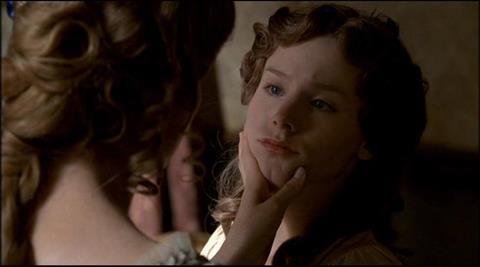
Alongside this, we’d get the oppression of the masters, the absence of law and its enforcement and the grassroots building of a community and resistance.
Deadwood set the bar impossibly high, laying out the sort of TV I wanted to write and what it would require: great language, complex characters, big themes and big ideas.
That sort of work was way beyond my writing capabilities but I was - and still am - willing to do a long apprenticeship to get there. Deadwood showed me what I should be aiming for.
Equally importantly, a woman’s name was all over the producing and writing credits: Elizabeth Sarnoff.
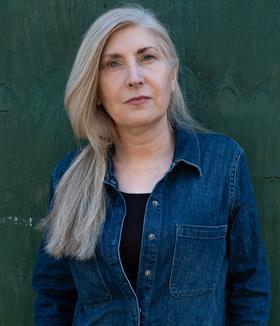
Seeing her there gave me a precedent. It made writing for a show like Deadwood seem possible.
- Alice Nutter is a screenwriter and playwright whose TV credits include BBC1’s The Street, Channel 4’s The Mill and FX series Trust. HBO’s one-off revival Deadwood: The Movie airs on 31 May
Topics
Drama Masterclasses
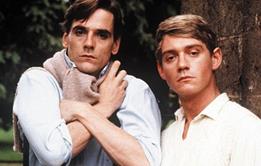
Prestige shows including Basi Akpabio on Brideshead Revisited; Jack Thorne on Boys from the Blackstuff; and Aysha Rafaele on The Singing Detective
- 1
- 2
- 3
- 4
- 5
- 6
- 7
- 8
- 9
 Currently
reading
Currently
reading
Alice Nutter: Deadwood
- 11
- 12
- 13
- 14
- 15
- 16
- 17
- 18
- 19






















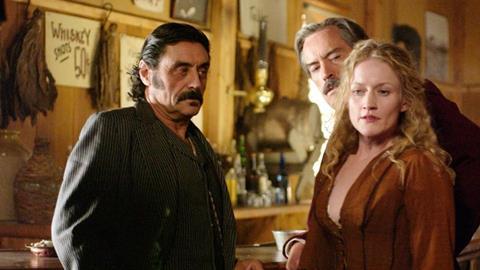
























No comments yet